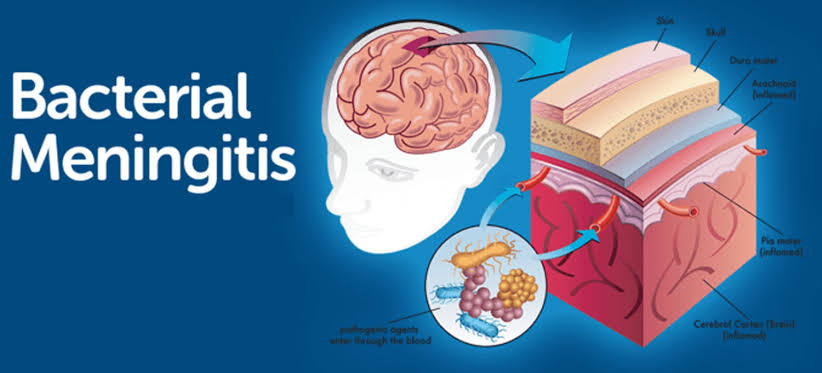
Meningitis is an inflammation of the membranes (meninges) surrounding the brain and spinal cord. Meningitis may result from viral infections, as well as bacterial, parasitic and fungal infections. Some cases of meningitis get better without treatment within several weeks, and others can be life-threatening and require immediate treatment with antibiotics.
Symptoms of meningitis
Nausea headaches may be a sign of meningitis
Early symptoms of meningitis may be similar to those of the flu. Symptoms may develop over several hours or a few days.
Possible symptoms in anyone over the age of two, according to the Mayo Clinic, include:
Sudden high fever.
Neck stiffness.
A severe headache that looks different from a regular headache.
Headache accompanied by nausea or vomiting.
Confusion or difficulty concentrating.
– fits;
Drowsiness or difficulty waking up.
Sensitivity to light.
Loss of appetite and thirst.
Skin rash (sometimes, such as meningococcal meningitis).
meningitis treatment
Treatment depends on the type of meningitis:
– Bacterial meningitis: acute bacterial meningitis should be treated immediately; using intravenous antibiotics and sometimes corticosteroids; This helps to ensure recovery and reduce the risk of complications; Such as brain swelling, seizures. The type or combination of antibiotics depends on the type of bacteria causing the infection.
Viral meningitis: Antibiotics cannot cure viral meningitis, and most cases get better on their own within several weeks. Treatment for moderate cases of viral meningitis usually includes: bed rest, plenty of fluids, and over-the-counter pain medications; To help reduce fever and relieve body aches.
Your doctor may prescribe corticosteroids to reduce swelling in the brain, and an anticonvulsant medication to control seizures. If the herpes virus causes meningitis, antiviral medication is available.
Other types of meningitis: if the cause of meningitis is not clear; Your doctor may start treatment with antivirals and antibiotics, until the cause is known.






